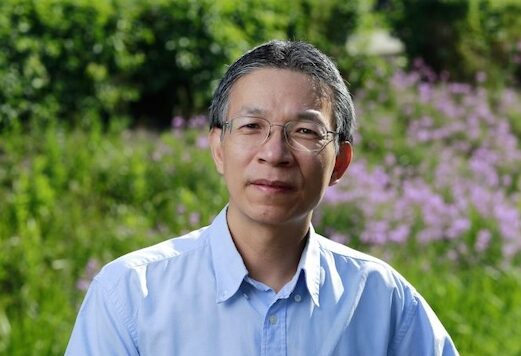Of course your mother wants to stay in her own home. She’s lived there for 60 years, from when you and your siblings were kids. While alone now since your dad passed away and everyone’s moved out, she has family and friends over, and loves the place.
But you still worry.
You know that older adults are more likely to fall. And you get the feeling your mother’s been getting more forgetful lately.
Dr. Jie Liang and his startup company, AltumView, had you – and the global aging population – in mind when they decided to use their expertise in engineering to create technology that can assist older adults to live more safely – and with an eye on changes in their evolving health.
“Most of the existing technology available for remote monitoring of older adults is very old and there has been little focused on the seniors sector,” says Dr. Liang, professor in the School of Engineering Science at Simon Fraser University in Vancouver. “We have expertise in the video and image processing and Artificial Intelligence (AI) areas and thought that we could apply that to a new way for families and caregivers to make sure their loved ones are safe at home.”
Their solution is the Sentinare smart activity sensor.
Sentinare uses AI algorithms to perform a number of functions. One is around the safety of a person in their home. Sentinare mounted throughout the home monitor physical movement. If a fall out of bed, a slip or other abnormal movements are detected, Sentinare will send an alert to the person’s contacts via their smartphone.
And there’s a critical privacy-preserving feature Dr. Liang says is distinctive from traditional surveillance cameras: Sentinare will only send stick figure animations of the person, instead of the real video.
“Privacy is important. After all, Sentinare is used in places where people go about all the activities we do in our homes. So, if your mother is using the bathroom and she falls, you will be notified with a stick figure animation to show what happened, not a full video of her.”
Sentinare also provides daily analytics that offer a wealth of health information about, for example, sleep habits and the amount of physical activity a person is getting.
In fact, that aspect has served the inventor and his family well.
Dr. Liang had Sentinare installed in his mother’s home. “She is 80 and lives alone. Early last year I began to notice changes in her daily activity. I did not pay much attention at the beginning, but a few months later her situation was worse and she was diagnosed with dementia. I then realized that Sentinare really has the potential to help identify some disease symptoms earlier.”
The product was a CES 2021 Innovation Award Honoree, and has been selling well, with customers in about ten countries, says Dr. Liang. In particular, in 2022, it was selected by Amazon as one of only three fall detection devices in its Alexa Together emergency service, and has received the best customer review. Most Amazon customers purchase Sentinare for their parents living independently, but their positive reviews have helped AltumView to get Sentinare into the residential care and remote patient monitoring sectors as well.
AltumView was recently selected as one of five Canadian companies to expand their healthy aging solutions into the UK and even Europe as part of the coveted UK Canada AgeTech Innovation Exchange program.
Dr. Liang is thankful to AGE-WELL for its support, which included a $50,000 post-discovery grant to test Sentinare, valuable feedback from an older adult/caregiver insight panel, and a session with AGE-WELL’s volunteer chief entrepreneur, Michael Tamblyn.
Dr. Liang feels the time is right for Sentinare, given what the world has experienced over the past few years.
“The pandemic showed us that we need a big overhaul of how we care for seniors. The average lifespan is increasing. So we need to ensure that we can provide a safe home environment now more than ever before.”


